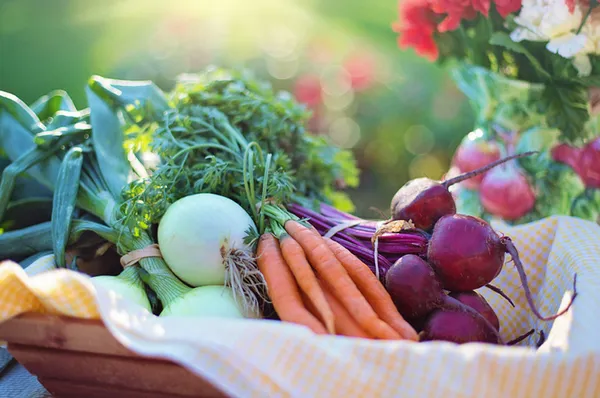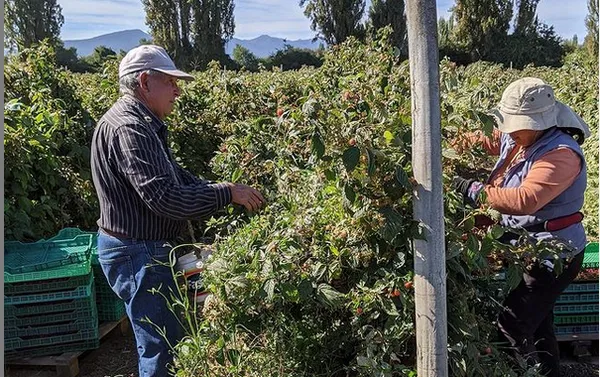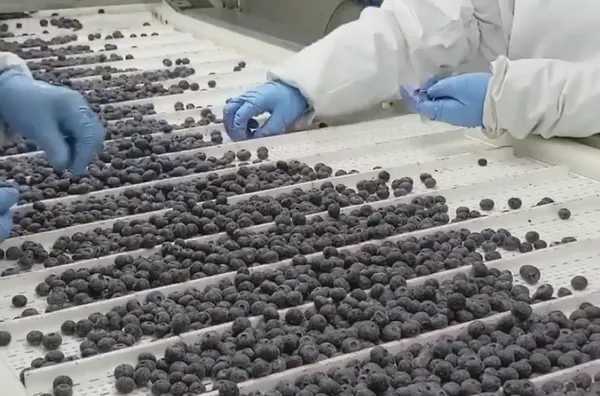An Australian food supply company says it is continuing to bring new produce from around the world back home to help the foodservice industry and manufacturers expand its culinary range for consumers.
Natural Ingredients is a business focused on fruits and vegetables in various formats, which are supplied to food manufacturers. Majority shareholder Shane Bukovinsky says sales go to both the foodservice space, as well as retail, under various brand labels.
"We import them from around the globe, put them into one of our warehouses, or deliver them directly to their distribution centres," he said. "We are very strong in berries and tropical fruits; whether that is IQF (frozen) berries in one-kilogram bags going into foodservice space, or berry purees or concentrates that we sell to the juice industry and we have quite a large presence in the beverage, jam manufacturing and fruit preparation market. Indirectly, we are one of the largest suppliers of fruit into the yoghurt space. On the vegetable side, we supply produce for products like soups and pies, ready meals and baby food products. We source products from around the world and supply to food manufacturers."

It is not just any fruit and vegetables, with the company focused on those that are natural, sustainably produced and from businesses with good farming practices and food safety systems. But ultimately, Mr Bukovinsky says it comes down to what the client has requested.
"It is very much around the client’s specific requirements," he said. "The baseline is a minimum level of food safety certification that the producers need to hold. Alongside that comes the customer-specific requirements, whether it is bite-size, sieve-size or packaging/label requirements, while some need organic certification. More often now we are being asked for things like sustainability certification and fair trade. In many cases, we are bringing in products that are unique to our customers."

Another big focus for Mr Bukovinsky has been working with chefs and the foodservice industry to provide what he observes as some of the emerging foods and trends from around the globe, to expand their product range.
"In a normal year, we spend up to three months of the year travelling around the globe to trade fairs and different producers," he said. "We are often coming across products that we don't see in our market. It is one of the great joys coming back and talking to our customers about things that we see as fitting in with their business, sampling new products or putting a unique spin on them that could be suited to our market. One recent example is jackfruit that is being used as a meat substitute in vegan meals. That's a fruit with a unique texture when it gets cooked up and has a texture like pulled pork and is easily flavoured. The vegan category is still quite small, but it is growing and plant-based meat alternatives are a hot subject."
The company noticed some trends at an in-home domestic level when COVID-19 first hit in 2020, with growth in demand for frozen foods as well as "old-fashioned" foods such as pies, jams and canned foods.
"Traditionally, we have seen products in those categories shrinking over the years or having low growth rates," Mr Bukovinsky said. "It was interesting to see some sharp rises for some of those categories and having some resurgence. I suspect the main reason for it was the longer shelf-life, so people can buy those and be assured that they will not go out of date in a few months. They were safe purchases in case they couldn't get back to the supermarket regularly. Apart from that, products like frozen fruit are healthy, they are all-natural with no additives and more often are finding their way onto people's plates to naturally sweeten breakfast cereals and things like that."

Mr Bukovinsky also co-owns the Ra Food brand, which produces the only Rainforest Alliance Certified™ frozen fruits for Australia and New Zealand. He says 2020 during the height of the pandemic was the most interesting time that he has been in the frozen foods space, especially with the impact of sea freight having a "double-digit effect" on the cost of imported produce in Australia and New Zealand.
"Those who were involved at the pointy end of the supply chain were buying fruit from growers and processors on a daily basis and we were one of those," he said. "We have seen how quickly that has impacted supply and price. At a consumer level, the way category reviews are handled, a lot of the retail prices are still the same as they were around 12 months ago. when they were last reviewed. What we see is enormous pressure in the supply chain for products that are short in supply and their prices have more than doubled, while retail prices are still the same."
For more information
Shane Bukovinsky
Natual Ingredients
Phone: +61 2 4573 2555
info@naturalingredients.com.au
www.naturalingredients.com.au
